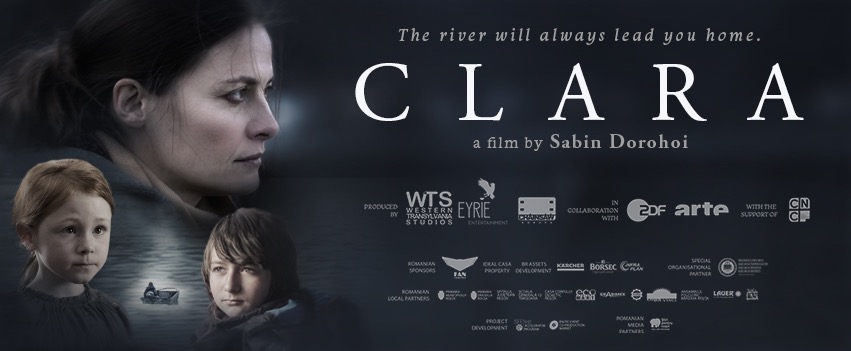
By: Robert St. Martin
Los Angeles, CA (The Hollywood Times) 3/3/2024 – For director Sabin Dorohoi, his film Clara (Romania, 2023) has been a labor of love dating back many years, and the film clearly shows his attention to the powerful and moving screenplay written by Buxandra Chitescu.
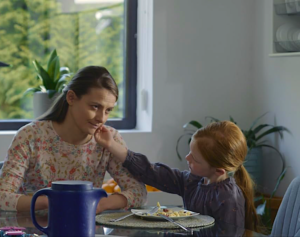
Dorohoi’s feature screened Thursday at the Laemmle Royal Theatre in West L.A. as part as this year’s 19th Annual SEEfest Film Festival in Los Angeles.
Set in the background of economic migration, the film tells the story of Clara, a divorced Romanian mother in her thirties who needs to work abroad in Ulm, a German town by the Danube River. She is the live-in nanny for a little girl named Johanna who adores her and to whom she, in turn, is very devoted.
Clara was originally a schoolteacher in her sparsely populated village in western Romania on the Danube near the Romanian area known as the Danube Gorge that separates western Romania from neighboring Serbia. She was laid off from her work as a schoolteacher and then was divorced by her husband who has moved to England and taken a new wife.
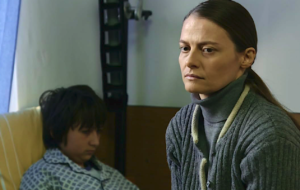
She was living with her father Nicolae in the small Romanian town and raising her son Ionut, but economic necessity forced her to seek employment in Germany, where she could earn enough income to support her son and help her own father.
We first meet Clara (played by Romanian actress Olga Torok) in the home of a divorced German businessman Markus (David Rott), a single father, who has his elderly senile mother and his young daughter Johanna (Elina Leitl) living with him. Clara was hired to take care of both and live in their home as a nanny and caregiver.
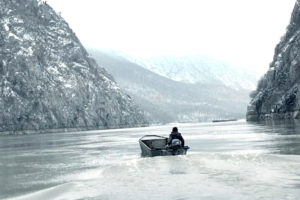
Torok was originally conceived of for the part because of her command of both Romanian and German. The film focuses more on Clara’s relationship with the charming young German girl Johanna – as a counterpoint to her somewhat distant relationship with her own son Ionut (Luca Puia) who has been left alone with his grandfather Nicolae (Ovidiu Crisan) back in their village on the Danube. She is not happy about having to leave behind her own 12-year-old son Ionut behind.
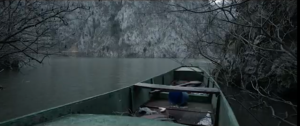
Feeling abandoned by his mother, the boy runs away from home in an attempt to reach his mother by traveling on a small boat upriver. In this context, Clara has to come back home and face the life she left behind: her responsibility for the actions of her son.
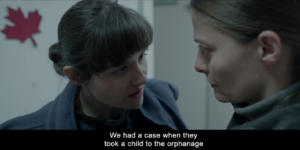
Child Protective Services intervenes because the boy has no father and his mother is largely absent as well – working in Germany. They are concerned that she has abandoned her own son and believe that his disappearance in small boat on the Danube was a suicide attempt. Clara is torn between the love for her son and the maternal feelings for the little girl she cares for in Germany.
Clara was many years in the making and it was wonderful to have an informative Q&A with films director Sabin Dorohoi and his music composer Eduard Dabrowski after the screening at the Laemmle Royal Theatre in West Los Angeles.
Director Dorohoi explained that he carefully designed the film’s cinematography with deliberate contrast between the color and shaping of scenes in Germany and in Romania – to distinguish the German lighter scenes from the darker, more foreboding scenes in Romania. The soundtrack with music by Eduardo Dabrowski reflects this as well, with an ominous feeling to the location and events on the Danube in the Romanian town.
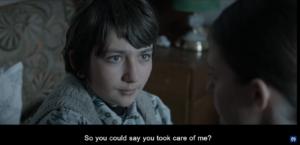
What is significant about the film is its quiet commentary on the issue of East-to-West economic migration in Europe today. The small Danube town in the Transylvania region of Romania was once settled with German immigrant farmers in the 17th century during re-conquest of the area by Austrian-Hungarian Empire.
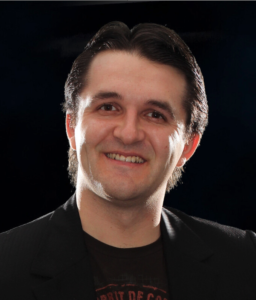
Today the economic migration is the opposite with citizens of Eastern Europe migrating to Germany and Western Europe in search of better-paying jobs. Clara is only one of 3 million Romanians who currently work in Germany as migrant workers. The issue of children left behind is a huge problem in Romania today.
The screening was supported by the Blue Heron Foundation and the UCLA Center for European and Russian Studies. The film had a second screening at the Laemmle Town Center the following day with another Q&A with the director Sabin Dorohoi. His short film, Way of the Danube (2013 won the grand prize at Oscar-qualifying Chicago International Children’s Film Festival – USA.